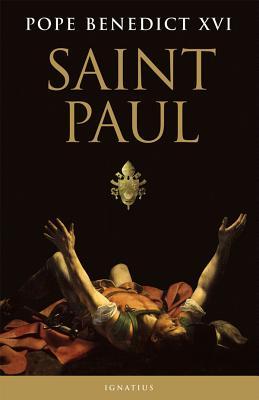Saint Paul is one of the most important figures in Christian history. As Saul of Tarsus he vigorously persecuted Christianity, even collaborating in the death of Saint Stephen, the first Christian martyr. Paul's encounter with the resurrected Jesus on the road to Damascus changed his life, the Church, and the world. More than anyone else in the early Church, Paul saw the universal nature of the Christian message. He became the Apostle to the Gentiles and the Teacher of the Nations. As the author of half of the New Testament, Paul is a figure who cannot be overlooked by anyone who wants to understand Jesus Christ and Christianity.
In this book, Pope Benedict XVI, a profound spiritual leader and a first-rate theologian and Bible commentator, explores the legacy of Saint Paul. The pope follows the course of the Apostle's life, including his missionary journeys, his relationships with the other Apostles, and his martyrdom in Rome. Benedict also examines the following questions: Did Paul know Jesus during his earthly life. How much of Jesus' teaching and ministry did he know about? Did Paul distort the teachings of Jesus? What role did Jesus' death and resurrection play in Paul's teaching? What are we to make of Paul's teaching about the end of the world? What does his teaching say about salvation and the roles of faith and works in the Christian life? How have modern Catholic and Protestant scholars come together in their understanding of Paul? What does Paul have to teach us today about living a spiritual life?
The Apostle Paul, an outstanding and almost inimitable yet stimulating figure, stands before us as an example of total dedication to the Lord and to his Church, as well as of great openness to humanity and its cultures.
-- Pope Benedict XVI
